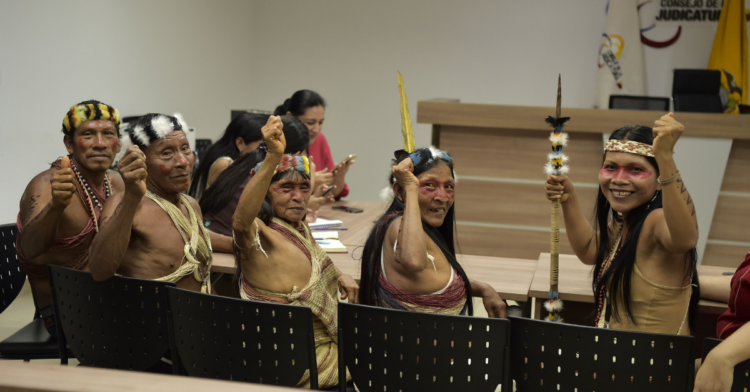The more we look into the political realm, the easier it is to become disillusioned.
We often see powerful interests influencing leaders to make decisions that negatively affect our lives, if not our actual chances of survival. And whether these leaders understand the issue or not (which isn’t always guaranteed), we may find that we don’t have many options to address these decisions.
But sometimes, we come across stories that give us a little hope that justice can be served. And one case from Ecuador serves as a pleasant surprise for the cynical.
The Ecuadorian province of Pastaza is home to a wealth of natural beauty and lush rainforests.

And it is also home to an indigenous nation known as Waorani, who preside over a set territory and claim the right to decide how that land is used.
This right, however, was challenged by an ongoing economic move by the Ecuadorean government.

As The New Yorker reported the government has been dividing up areas of the Amazon in recent years to lease land to logging, mining, and oil companies.
The decision of who gets to use which land would be decided via an international auction.
The problem is that one of the zones they intended to lease to an oil company included Waorani territory.

More specifically, the problem was that the government hadn’t sufficiently consulted the Waorani before they went forward with oil exploration plans.
Although representatives from Ecuador’s Ministry of Energy and Non-renewable Resources traveled to at least one Waorani village, the leaders they sought out were hunting at the time.

According to Mitch Anderson of Amazon Frontlines, a group that helps indigenous groups in the area work out sovereignty issues, this was the first of a series of short visits where officials made little effort to overcome the language barrier between them.
As he put it , the government treated these visits as a formality rather than a serious discussion about the land the Waorani lived off of.
At no point did the government actually secure the Waorani’s consent to open their land up for oil exploration.

Although the government would remove the Waorani land from auction consideration in 2018, they still said the area could be drilled in the future.
This led the Waorani to file a lawsuit against the government alongside Ecuador’s Ombudsman.

As The New Yorker reported , the trial had moments of uncertainty, such as when a group of Waorani women shut down one hearing with a song of protest against the fact the case was tried far from their villages and didn’t include a court-certified translator.
However, the court found in favor of the Waorani on April 26 and ruled that the government had not given the Waorani a chance for informed consent.

This meant that they could not earmark the land for oil exploration or auction it to any interested companies.
As Nemonte Nenquimo, a Waorani leader, said, “Our territory is our decision, and now, since we are owners, we are not going to let oil enter and destroy our natural surroundings and kill our culture.”
This victory could set a precedent for other indigenous groups affected by this auction plan, as six other nations in the area were treated similarly by the government.

However, any activists who seek to help these nations achieve similar control over their own lands do so at serious personal risk.
Over the last 10 years, supporters of logging, mining, oil, and agricultural companies have conducted over 1,300 violent attacks on environmental activists throughout the Amazon region.
h/t: The New Yorker

















































